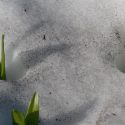Three new studies to take a look at angles related to Wisconsin water
Three new research projects, all based at the University of Wisconsin–Madison, will each take a look at a specific angle related to the state’s water supply and use, including one study specifically studying Madison’s water for the presence and effects of manganese.
The projects total about $400,000 and got underway on July 1. They include:
- Tracking the presence of manganese in Madison’s water supply. When water is flushed from water mains, greater concentrations of manganese could then move through the water distribution system. This is a naturally occurring metal. However, people exposed to higher doses could develop neurological problems. Professors Matt Ginder-Vogel and Christina Remucal of the Department of Civil and Environmental Engineering will lead the study.
- A study to look at the possible effects of geothermal energy on groundwater and on surface water temperatures. Professor James Tinjum with the Department of Civil and Environmental Engineering, Christopher Choi with the Department of Biological Systems Engineering and David Hart with the Wisconsin Geological and Natural History Survey will be involved with the study.
- Despite the harsh 2013-14 winter, Wisconsin winters on average are predicted to lessen in severity. That means reduced ice cover on Wisconsin streams, which is a key interface for groundwater and surface water. A project led by Steve Loheide of the Department of Civil and Environmental Engineering will investigate the hydrologic impacts of less harsh winters and what that means for the overall management of both groundwater and surface water.
Five additional projects will be funded in this two-year cycle by the Wisconsin Department of Natural Resources. All eight projects are part of the Wisconsin Groundwater Research and Monitoring Program. It is made up of the University of Wisconsin System, the DNR and the Wisconsin departments of Agriculture, Trade and Consumer Protection, and Safety and Professional Services. The UW System’s portion of the program operates through the University of Wisconsin Water Resources Institute.
Tags: business, environment, research, water



